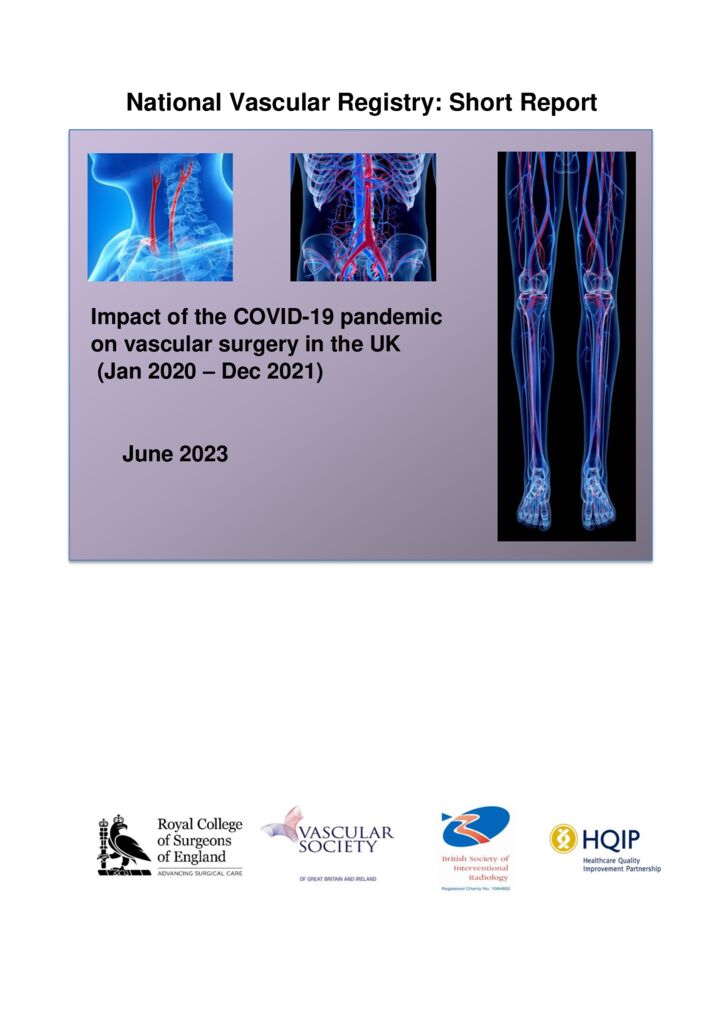Impact of the COVID-19 pandemic on vascular surgery in the UK (NVR)
The National Vascular Registry (NVR) has published a report on the Impact of the COVID-19 pandemic on vascular surgery in the UK, presenting key findings from NVR data throughout 2020 and 2021. NVR previously reported on data as at 25 September 2020, which showed that a concomitant COVID-19 infection in patients undergoing vascular surgical procedures significantly increased the risk of respiratory complications and mortality. Here, they update this analysis, using data through to the end of 2021, and explore whether the COVID-19 vaccination programme provided protection to patients against this life-threatening complication.
One finding is that, between March 2020 and Dec 2021, confirmed postoperative COVID-19 diagnoses were most common among non-elective procedures, ranging from 18.4% (non-elective AAA repair) to 27.5% (major lower limb amputation). For elective procedures, the reported rates of confirmed postoperative COVID-19 diagnoses were lower, ranging from 1.6% (elective AAA repair) to 4.1% (lower-limb bypass).
Other key findings include:
- There was only a modest rise during the first COVID-19 wave (Mar-Jun 2020) with a larger rise during the second wave (Nov 2020-Feb 2021)
- There was a different pattern for respiratory complications after surgery, with higher rates observed in both wave 1 and wave 2.
- The period March to December 2021 was associated with rates of respiratory complications and in-hospital postoperative mortality returning to levels observed pre-pandemic in 2019.
Overall, the report concludes that the vaccination programme had a modest benefit to patients in reducing the risk of respiratory complications, and therefore carries a public health message relevant for both national and international audiences.
Read the full report: You can read the report by clicking on the link below.
Stay up-to-date: For notifications of future reports from HQIP, sign up to our mailing list.


